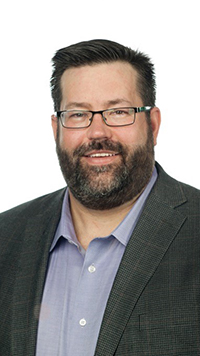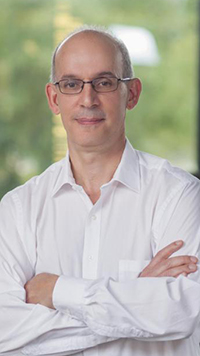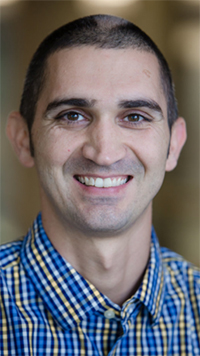Chemical biologists at Georgia Tech and peer institutions in the Greater Atlanta area are poised for a grand debut on April 21, 2018 – at the First Annual Greater Atlanta Chemical Biology Symposium, to be held at Emory University.
It is show time for the Southeast’s talent in chemical biology – the interdisciplinary field that uses chemistry tools and methods to understand and manipulate biological systems.
“Atlanta institutions are becoming a hotbed for research in chemical biology and related fields,” says Matthew Torres, an associate professor in the Georgia Tech School of Biological Sciences. “Institutional commitments and federal funding in the past five years,” he says, “have enhanced infrastructure to support world-class chemical biology research programs,” not only at Georgia Tech, but also at the symposium’s other host institutions: Emory University, Georgia State University, and the University of Georgia.
Faculty hiring has expanded the breadth of chemical biology research in the host institutions. “New hires, myself included, have been attracted to the community that is developing here,” says William Wuest, who joined Emory University in 2017 and chairs the symposium’s organizing committee.
“A lot is going on,” says M.G. Finn, professor and chair of the School Chemistry and Biochemistry and a member of the symposium’s organizing committee. “Chemical biology underpins vast activity in Atlanta on immunology, drug development, diagnostics, and many other applications. The symposium’s host institutions boast an impressive number and quality of chemical biology investigators.”
“Atlanta institutions are becoming a hotbed for research in chemical biology and related fields.”
In Georgia Tech alone, Finn notes, chemical biology research spans at least seven schools in the Colleges of Sciences and Engineering: Biological Sciences, Biomedical Engineering, Chemical and Biomolecular Engineering, Chemistry and Biochemistry, Electrical and Computer Engineering, and Physics. Chemical biology is also one of the main research areas supported by the Parker H. Petit Institute of Bioengineering and Bioscience (IBB), where the labs and offices of many Georgia Tech faculty doing chemical biology research are located.
In planning the April 21 symposium, Wuest drew upon his experience at his previous institution. Temple University regularly participates in an annual symposium on the chemistry-biology interface that highlights local talent in the Mid-Atlantic region, focusing on early-career faculty and students and featuring some keynote speaker, Wuest says. “It was wildly successful. I believe the time is right to start one in Atlanta.”
“The idea,” Finn says, “is to give chemical biologists in Atlanta – including undergraduate and graduate students, postdoctoral researchers, and faculty scientists – a venue to exchange results and ideas.”
“Chemical biology underpins vast activity in Atlanta on immunology, drug development, diagnostics, and many other applications."
The organizers have invited a diverse and interdisciplinary slate of nine keynote speakers, five of whom are from outside Georgia. Among the speakers from host institutions is Torres, who is also a member of IBB.
“My lab’s mission,” Torres says, “is to understand how post-translational modifications regulate the signaling of G proteins.” G proteins comprise a family of proteins mediating the transmission of myriad signals from outside the cell into the cell interior. They are major targets in the search for drugs to treat a variety of diseases. At the symposium, Torres will describe his lab’s work on the use of machine learning and neural networks to identify protein modifications involved in pharmacology and disease.
The symposium offers a way to liberate “chemical biology perspectives that are often maintained in isolation and rarely cross institutional boundaries,” Torres says. “A great deal can be gained by breaking these boundaries to create a more fluid and open community that is bigger and better than any one lab or any one institution alone.”
The symposium is free to all attendees, thanks to the generosity of the host institutions, the Georgia Research Alliance, and five journals: Journal of Medicinal Chemistry, ChemBioChem, ACS Medicinal Chemistry Letters, ACS Infectious Diseases, and ACS Combinatorial Science, whose editor-in-chief is Finn.
Registration, abstract submission, schedule, and other information are available at the symposium website, https://scholarblogs.emory.edu/gacbs/schedule/.
For More Information Contact
A. Maureen Rouhi, Ph.D.
Director of Communications
College of Sciences





